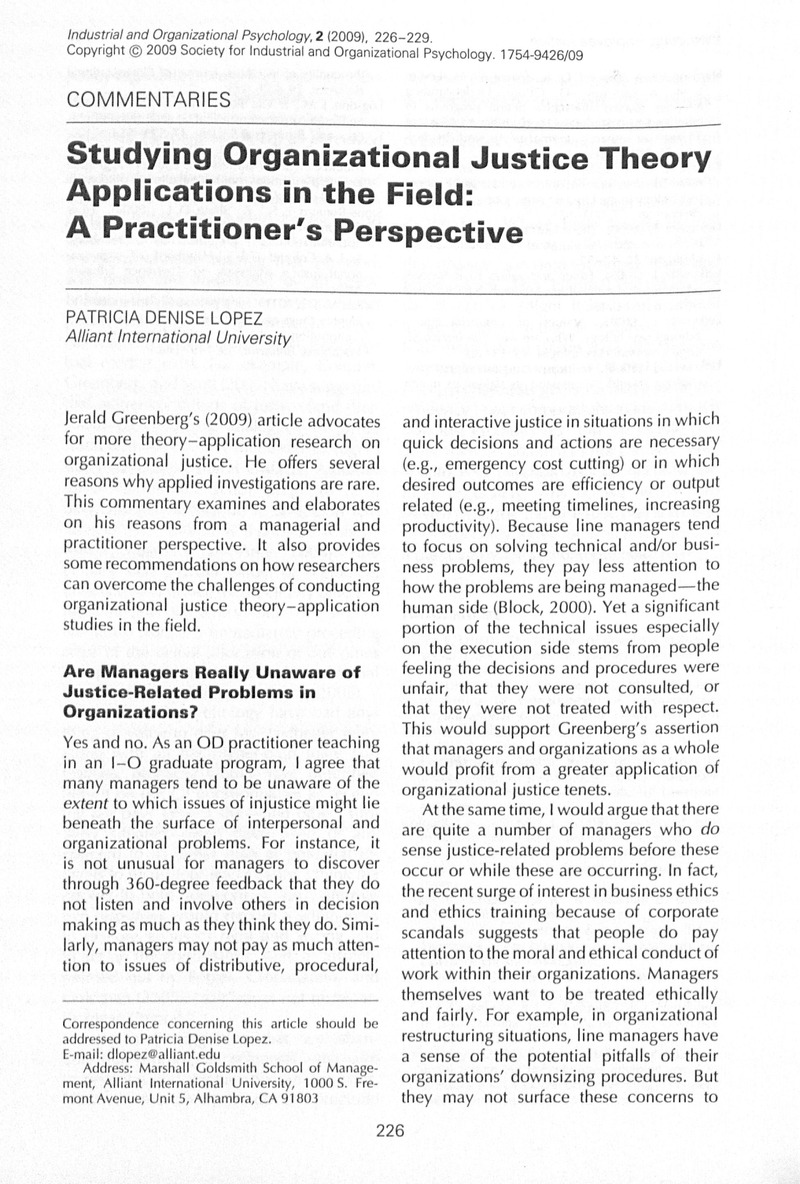Crossref Citations
This article has been cited by the following publications. This list is generated based on data provided by Crossref.
Greenberg, Jerald
2009.
Applying Organizational Justice: Questionable Claims and Promising Suggestions.
Industrial and Organizational Psychology,
Vol. 2,
Issue. 2,
p.
230.
Jilili, Maitixirepu
and
Aini, Aliya
2023.
Examining the Moderating Effect of Occupational Status on the Association of Organizational Justice and Job Satisfaction.
Public Organization Review,
Vol. 23,
Issue. 1,
p.
97.





